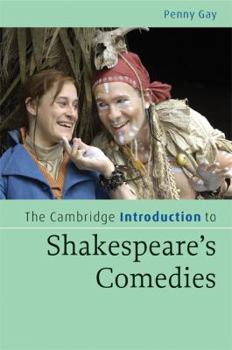The Cambridge Introduction to Shakespeare's Comedies
(Part of the Cambridge Introductions to Literature Series)
Select Format
Select Condition 
Book Overview
Why did theatre audiences laugh in Shakespeare's day? Why do they still laugh now? What did Shakespeare do with the conventions of comedy that he inherited, so that his plays continue to amuse and move audiences? What do his comedies have to say about love, sex, gender, power, family, community, and class? What place have pain, cruelty, and even death in a comedy? Why all those puns? In a survey that travels from Shakespeare's earliest experiments...
Format:Paperback
Language:English
ISBN:0521672694
ISBN13:9780521672696
Release Date:April 2008
Publisher:Cambridge University Press
Length:164 Pages
Weight:0.65 lbs.
Dimensions:0.4" x 6.1" x 8.9"
Customer Reviews
0 rating





